Examples and use cases for how teachers around the world have adopted AR, VR and XR in education

Start working with our enrollment team to find the best path forward.
Please send me information about the XR Foundations: Designer program when it becomes available.

Extended Reality (XR) – including the augmentation of reality with superimposed images or text (AR), and the creation of entirely immersive virtual worlds (VR), has made its way into k12 education.
XR technologies touch every grade, every subject, and every student. Augmented reality and virtual reality have allowed students to be immersed in their lessons, resulting in improved engagement from students of all abilities.
If these terms are unfamiliar, you are not alone. These posts will help give an understanding of the basics of VR and AR:
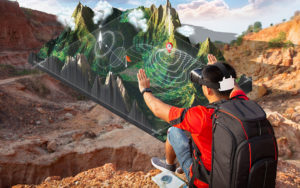
We understand that it can be overwhelming to understand how XR can fit into a teacher’s daily lessons. Teachers are enthusiastic about new strategies to help their students, but time and resources are often an obstacle. We are here for you!
XR Terra, in partnership with Verizon, wants to help educators and administrators build a fundamental set of skills and the confidence to engage VR and AR as amazing learning tools in their classrooms. Our goal is to create a supportive learning community for educators that will propel their learning, foster excitement, and inspire them to apply their new skills in classrooms during the school year 2022-23. See more about our free summer professional development here: https://www.xrterra.com/programs/teachers/
Although unfamiliar to many, XR is not exactly new to education. It has moved quickly from research and development, past trials, and into the mainstream. Here are some examples of growing momentum in public schools, starting in the 1990s and into 2022:
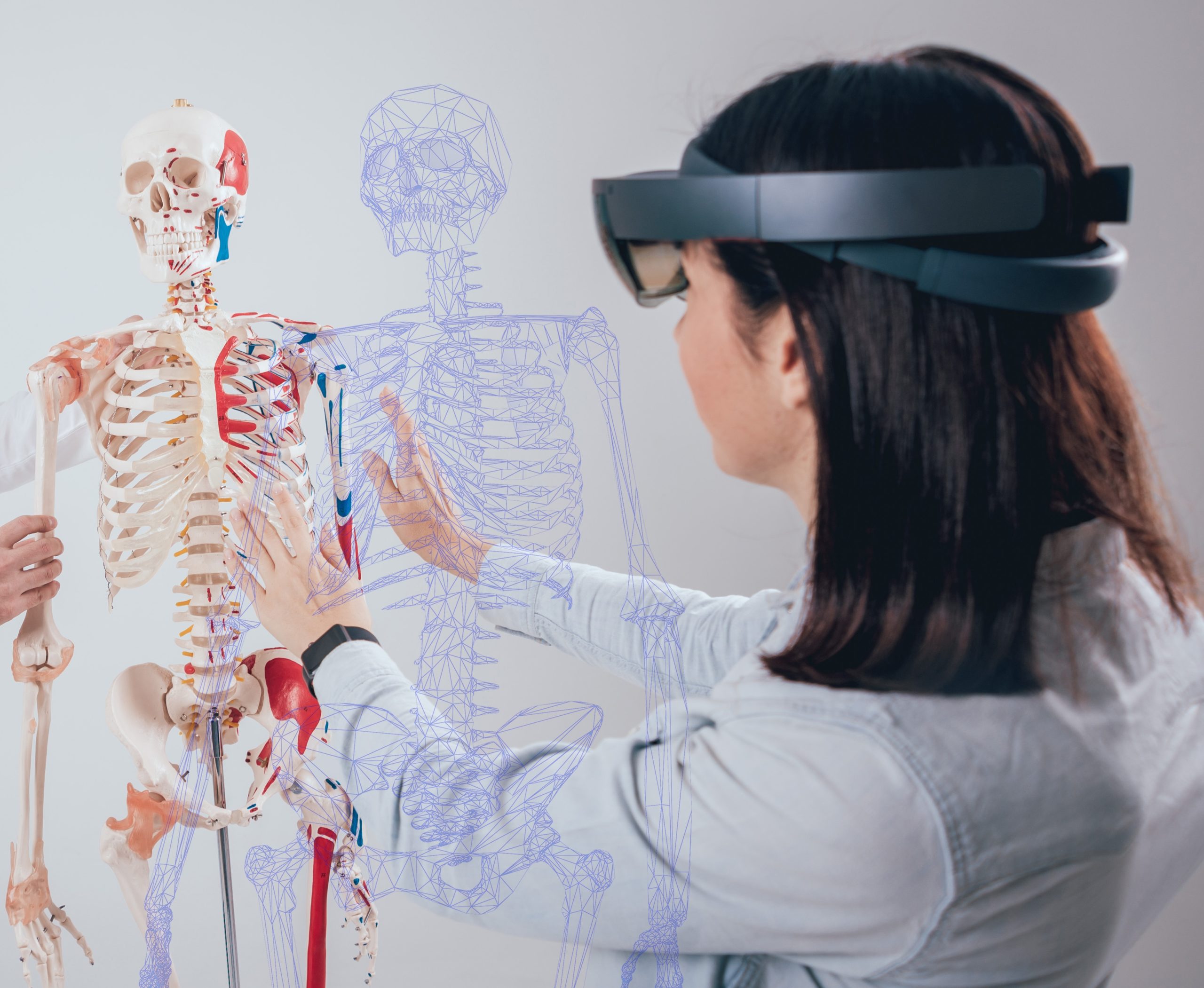
Gain the skills and confidence to use XR in your classrooms! We invite all educators to join us for some amazing professional development. Please visit our website for more information: https://www.xrterra.com/programs/teachers/
We welcome partnerships with our educational community. For more information about XR Terra’s commitment to building a supportive learning community for educators, contact Hakan Satiroglu at 617-901-0301 or hakan@xrterra.com

Whether you want to become a game developer or use your Unity skills for enterprise applications, participating in a Game Jam is a fun way to work on your skills and get to know other amazing developers! Games are often harder to make than typical business applications, and so you’ll really sharpen your skills when you make them, and everything you learn is transferable. Build your skills and have a game to play after, it’s a win-win.
Hold up – let’s answer this question first: What is a Game Jam? A Game Jam is similar to a Hackathon, but where people come together to try and make a video game from scratch. They’re short, usually 24 hours to one week, and centered on a theme. Most Game Jam submissions are judged and there are often prizes. Participants generally have a wide variety of backgrounds, ranging from those who are already game developers to designers, programmers, artists, and writers. Game Jams are exciting, competitive and fun!
Alright, you’re bought in, let’s learn more about Game Jams! Here at XR Terra, we think the best way to learn about Game Jams is to participate in some!
We compiled a small list of sites where you can find jams:
Game Jams are free to sign up, so find one starting soon, put together your team and get jamming! Do you have other recommendations? Let us know @ hello@xrterra.com!
Questions about XR Terra or our programs? Contact hello@xrterra.com.
XR Terra is a Unity Authorized Training Partner.

It’s Holiday Season and the Metaverse is upon us. If you’ve already gotten a VR headset or are getting one, here are some of our suggested upgrades to improve your VR experience.
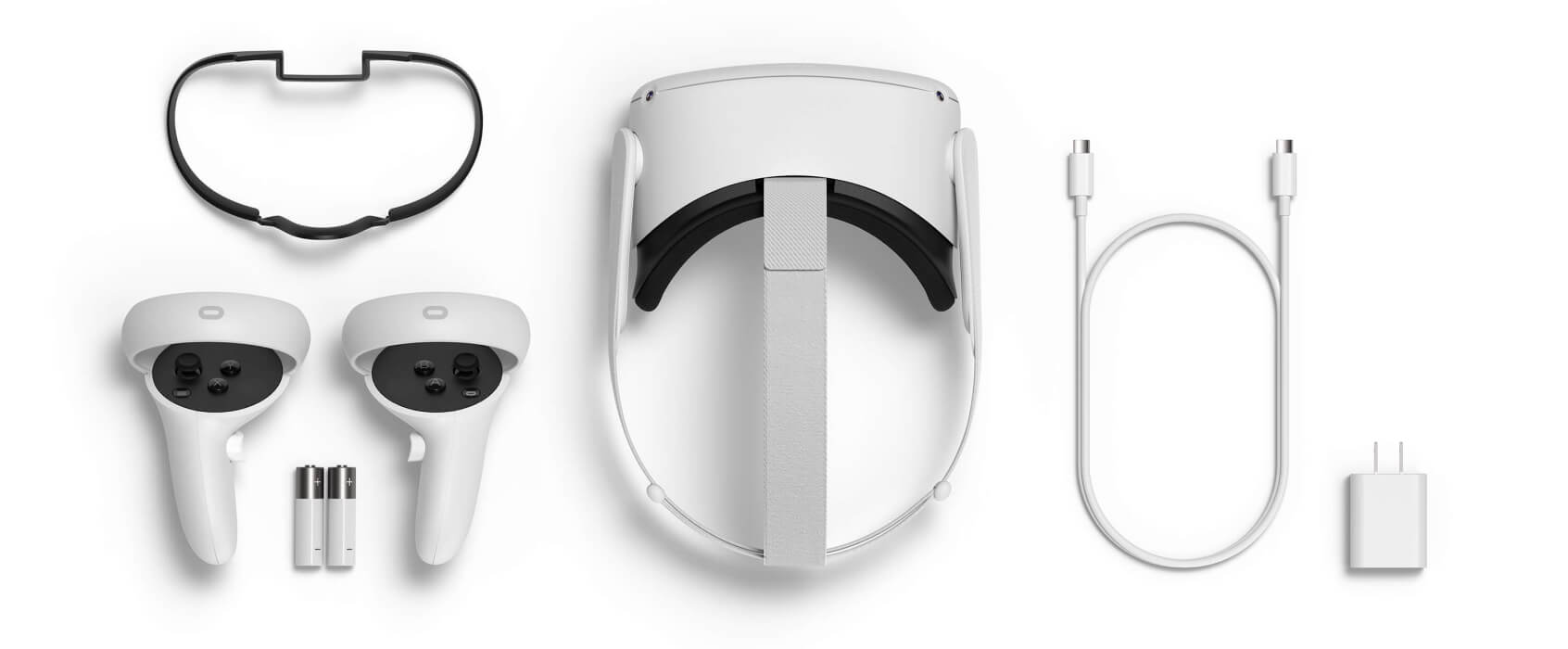
Why?
It’s the most affordable headset on the market right now.
It’s standalone – it’s an Android device behind the scenes and can run applications and games untethered, i.e. this does not need a powerful PC for a great experience. This makes it a great device to take to the family for the holidays. Make sure you have a case for it to protect your investment.
When you’re ready to take your VR experience to the next level you can tether it to a VR ready PC via USB C, or wireless with a strong Wifi connection to play PC based VR titles.
There are 2 models to choose from (technically 3 models)
While there are higher spec headsets on the market, because of the hybrid nature of the Quest 2 (standalone or tethered) this gives you the best of both worlds, especially for the low cost.
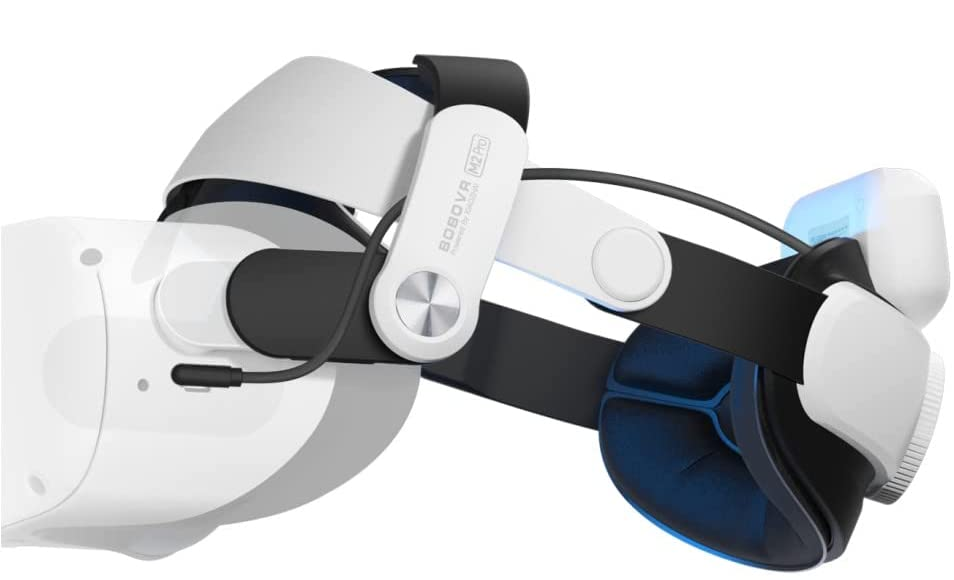
Why?
The Quest 2 native head straps have been prone to breakage over time. They’re also not that comfortable. The BOBOVR M2 head strap is much more comfortable utilizing a halo head strap design. It also has a magnetically attached battery for fast swapping and extending your VR sessions. The weight of the battery is set to a 50/50 balance between the headset and the battery so you won’t get neck fatigue from long gameplay sessions.
There are other head straps on the market but most require additional hook & loop straps to hold a spare battery, the M2 Pro has a magnetic mount on the back, you can add or remove a battery without even taking off the headset, it’s that easy.
$59.99 USD – BOBOVR M2 Pro Battery Pack Head Strap (comes with a 5200mAh battery)
$29.99 USD – BOBOVR B2 Battery Pack – Spare battery so you can play even longer!
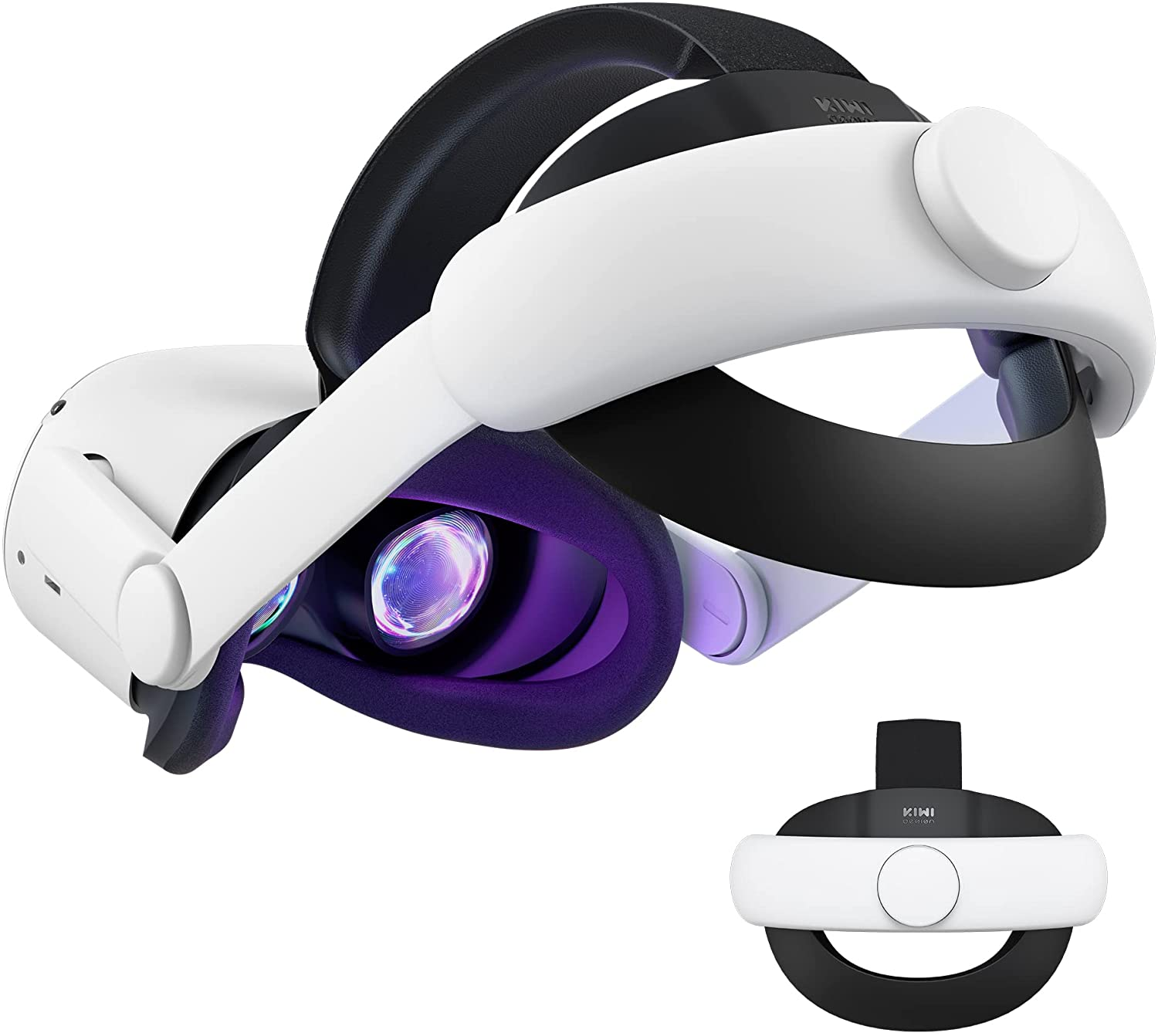
Why?
If you don’t need or care for additional battery power the KIWI head strap is an excellent alternative to the standard strap or the elite strap from Meta directly.
It also has a front hinge to easily lift the headset a bit to sneak a peek at your phone or quickly look at something on your computer while developing for VR.
$44.98 USD
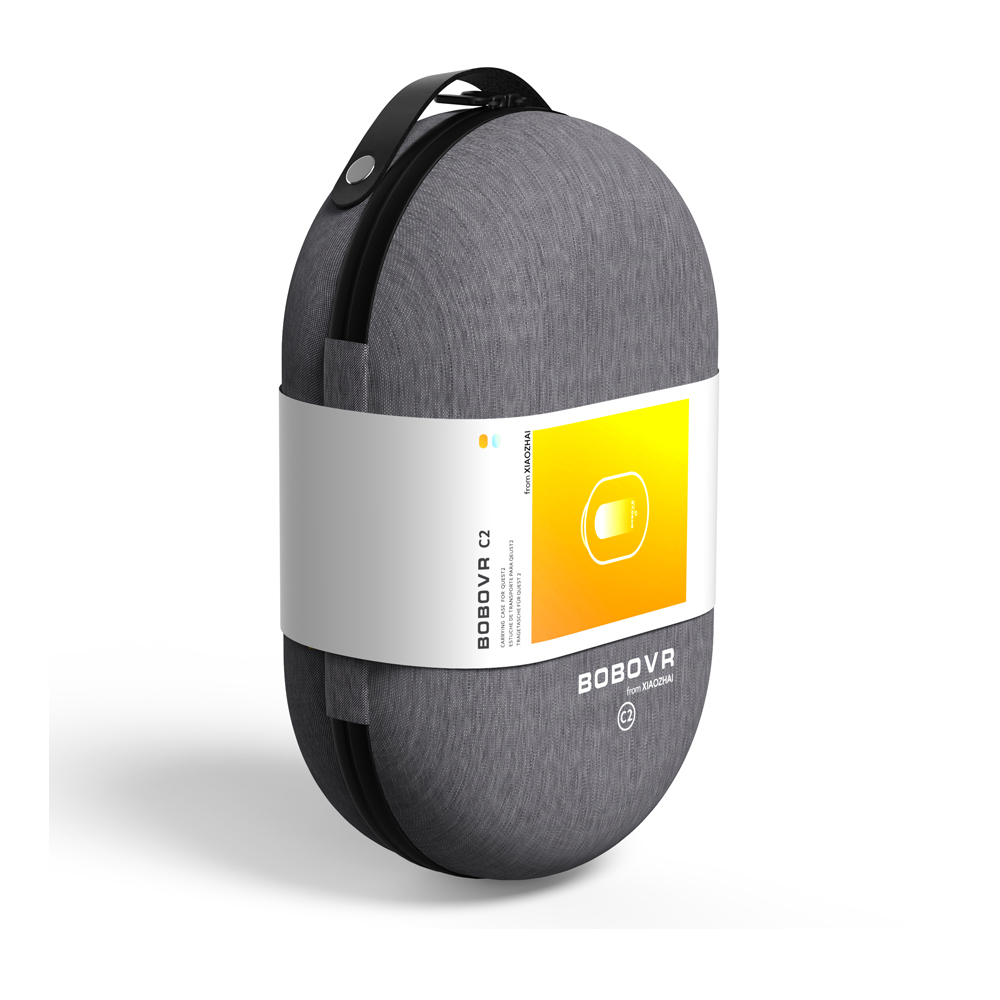
BOBOVR C2 Carrying Case
Why?
While some models of the Quest 2 come with a case, if you swap out the head strap, chances are it won’t fit. The C2 Carrying Case is designed to accommodate the M2 Pro Battery Head Strap and even has a slot for an additional battery pack in it.
If you’re going to be traveling this holiday season, you’ll want to protect your gear and this case does a great job of packing everything into a tight design that you can slip into a backpack.
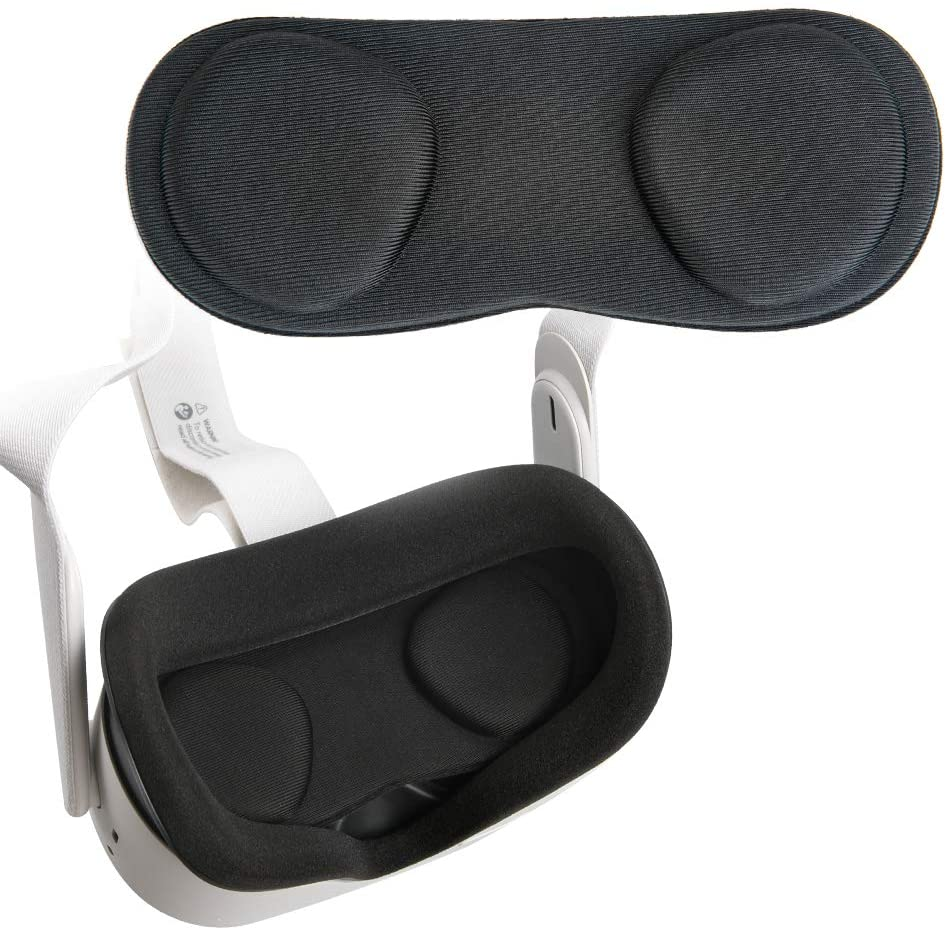
Orzero Quest 2 Lens Cover
Why?
The lenses in a VR headset are basically magnifying glasses. You should NEVER leave your headset facing towards an open window, as direct sunlight will permanently damage the headset’s screens.
Chances are you’re not storing your headset in a case all the time, so invest in a little protection to protect those lenses.
$8.99 USD
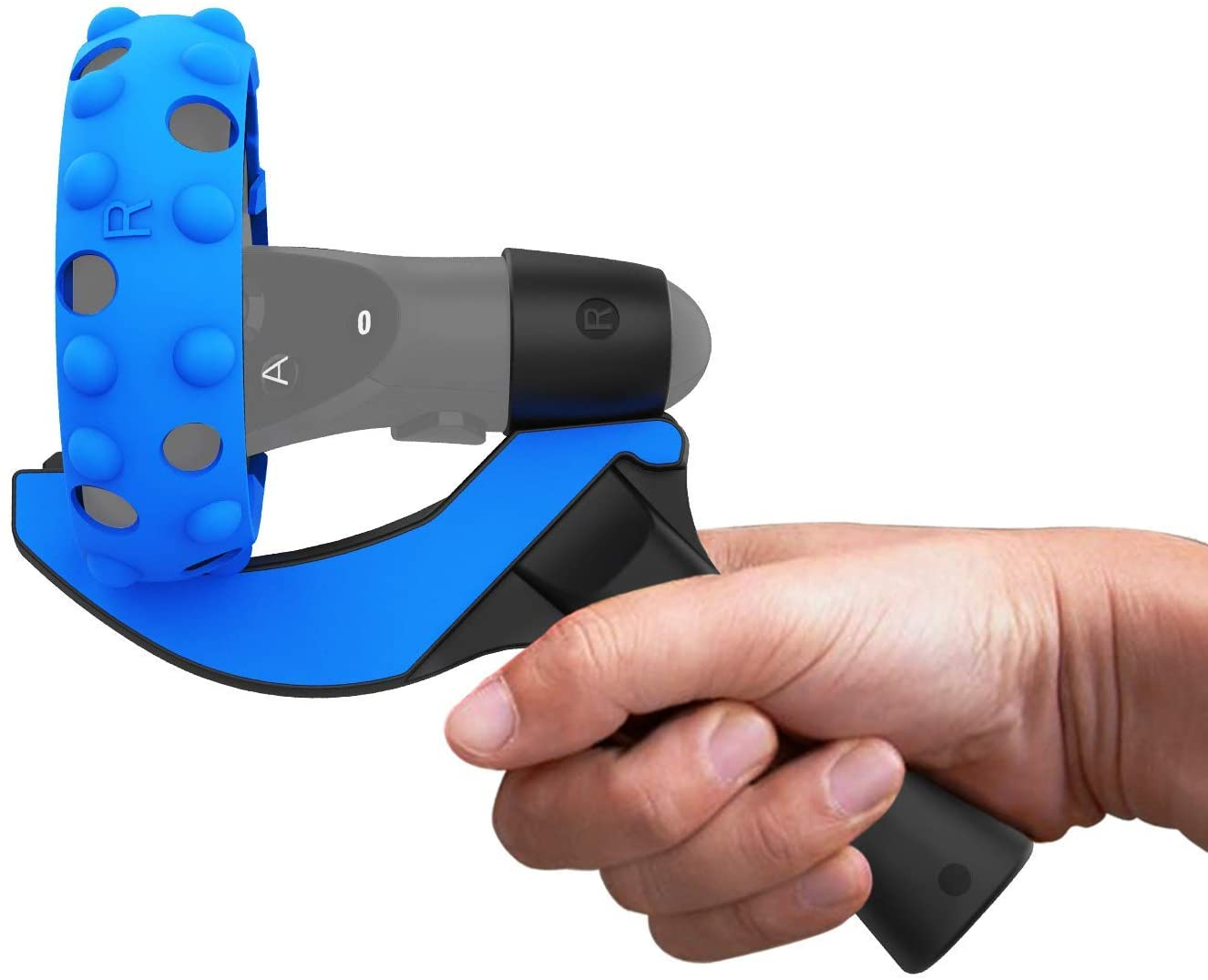
Table Tennis
There are many add-ons for VR controllers. Lately I’ve been playing a lot of table tennis in Eleven.
I picked up a 3D printed table tennis paddle grip on Etsy, but you can also find them on Amazon (AMVR is one of the commercial versions). You attach your controller to the grip with Velcro and it gives it a more natural balance as if you’re holding a real table tennis paddle.
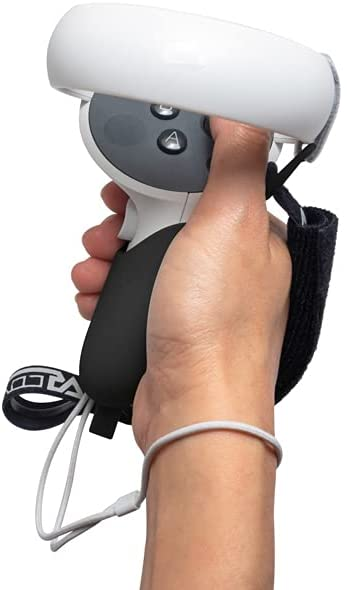
VR Cover Controller Grips
If you play energetic games like Beat Saber these grips give you added security that your controllers will stay in your hands.
$20.30 USD
Other Add-ons
There are many other add-ons for VR controllers such as gun stocks. Be careful with how they mount, sometimes inserting and removing the controller from the housing can put a lot of pressure on the tracking ring and risk breaking it.
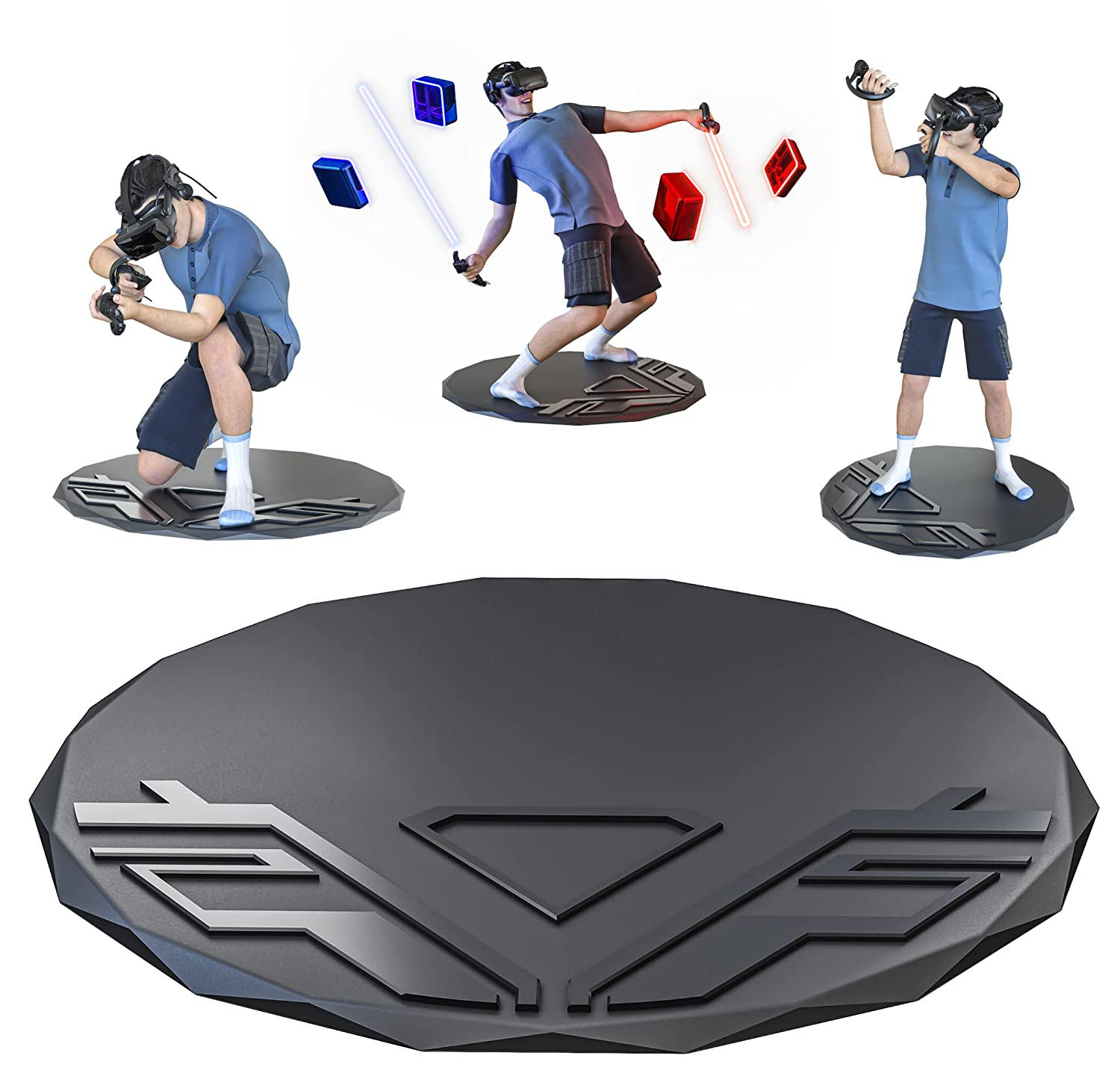
Make sure you have a clear area to play, you don’t want to roundhouse the dog or body slam the Christmas Tree.
One last item on the list is a VR mat.
$65 – XPACK VR Mat
Why?
It’s a 35” round anti fatigue mat with texture on one side. The texture helps you stay oriented while in VR (if you’re barefoot or wearing socks you can feel the texture to know which direction you’re facing in the real world). You can also kneel down quickly since it’s a soft foam, perfect for fitness games which tend not to have you moving all over in your house.
Whether for yourself or the aspiring VR enthusiast in your life, these accessories and add-ons will go a long way in making their VR experiences that much better.
Enjoy!
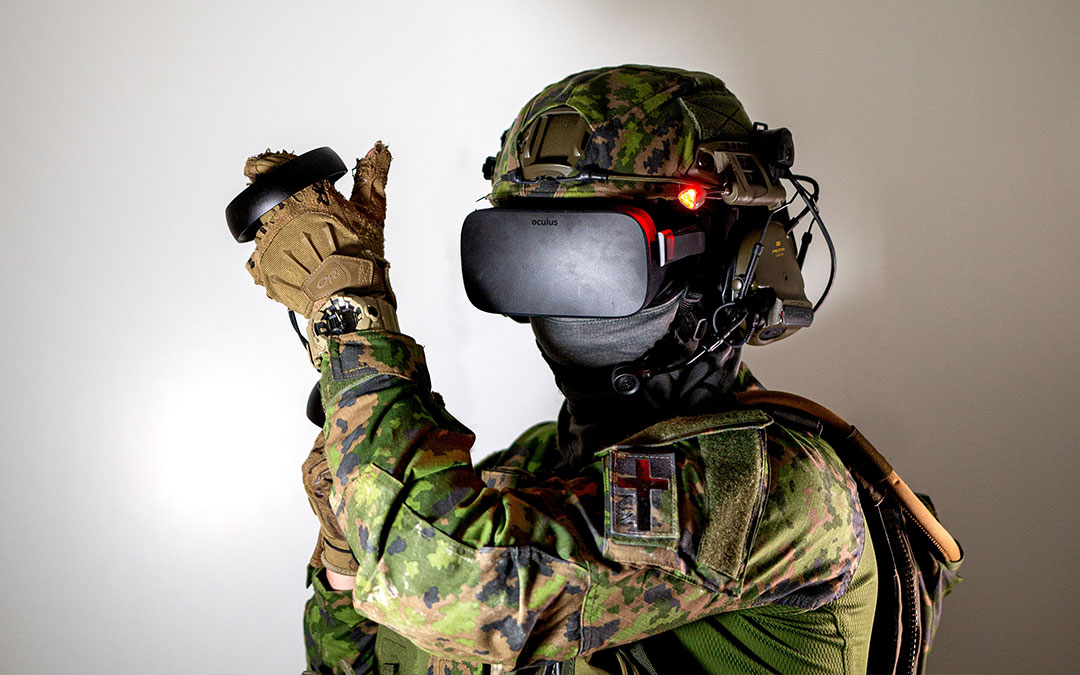
No really, put on the equipment and immerse yourself in the illusion that you’re in another world. That’s what VR is — a computer-generated simulation of a 3D image or environment that can be interacted with in a seemingly real or physical way using special electronic equipment. But besides gaming and entertainment, what else can you do with VR? And is it here to stay?
Let’s take a look at the world of virtual reality and see what’s in store for this futuristic, larger-than-life technology.
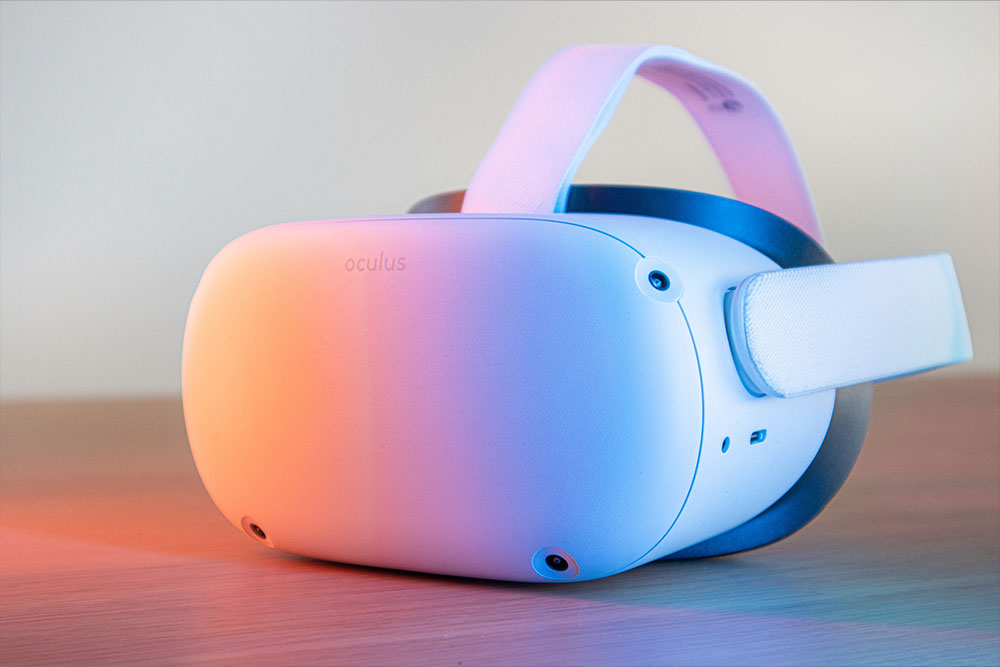
It all starts with the headset. Among the most popular brands are the Oculus Quest and HTC Vive. VR headsets can either be mobile/standalone or tethered:
Mobile and tethered VR headsets also differ in the degrees of freedom (DoF) they allow.
3-DoF headsets allow for rotational motion tracking, but not translational. This means the headset will register:
6-DoF headsets allow for translational, as well as rotational motion tracking. In addition to tracking head movements, 6-DoF headsets can track the body’s movement:
This allows for much more immersive VR experiences, giving the user freedom to explore environments and perform tasks.
Currently, some of the biggest kinks in VR include latency (how long it takes the technology to respond and match up to your movements) and subsequent simulator sickness (the queasy feeling you get from latency or your brain’s response to pixelated or blurry environments). While top of the line systems are better at protecting against these inaccuracies, designers and developers are hard at work to remove them across the board.
VR is part of a full spectrum of real and virtual environments, each with its own applications. While VR allows users to interact with a computer-generated simulation of a 3D image or environment in a seemingly real or physical way, AR, MR, and XR are slightly different:

Augmented reality is an immersive technology that superimposes a computer-generated image atop physical surfaces or objects in the real world when viewed by the user through an AR device like AR glass, HoloLens, smartphone, tablet, etc. You’ve probably experience AR on a number of apps already.
Think:
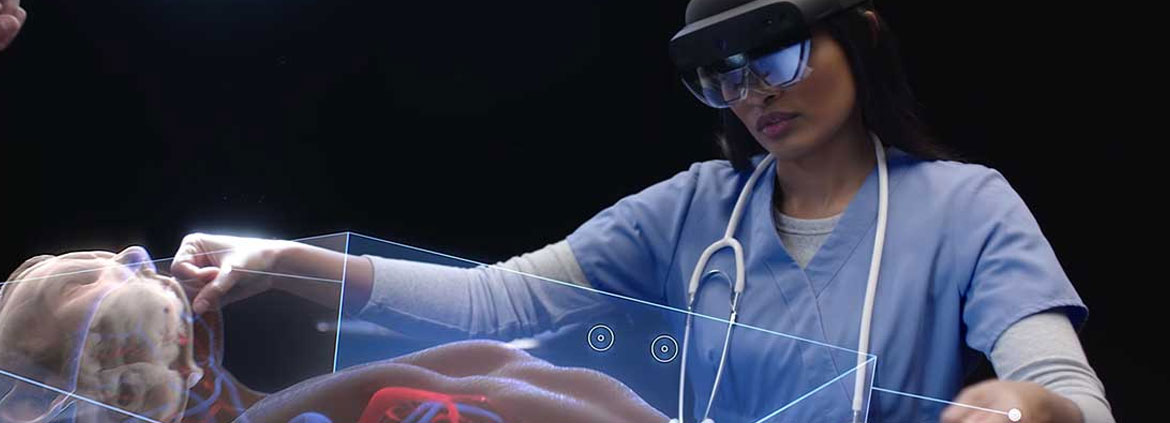
Mixed Reality brings together real world and digital elements. You interact with and manipulate both physical and virtual items and environments, using next-generation sensing and imaging technologies. Mixed Reality allows you to see and immerse yourself in the world around you even as you interact with a virtual environment using your own hands.
Think:
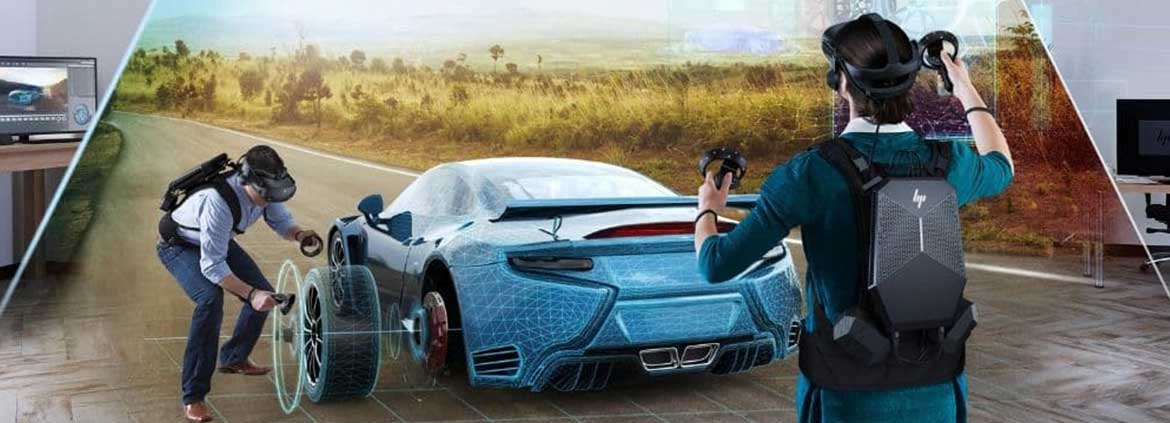
Encompasses the full range of these real and virtual environments, including AR, VR, and MR. XR takes the screen interface we’re used to and modifies it by either immersing you in the virtual environment (VR), adding to or augmenting it (AR), or both (MR). That means if you’ve played a VR video game or used an app featuring AR, you’ve already dabbled in XR.
But there are a ton of even more meaningful applications from aiding in pain relief and PTSD to teaching and “telecommuting” to work. VR developers and designers can make a big impact by designing hardware and virtual environments that extend to more industries and solve bigger challenges.
Those innovators could very well include you. The best way to get started and make an impact in the VR industry? Seek out VR education. Designers and developers are increasingly needed to meet the demand of this growing industry. XR Foundations courses offer a way to get started without prerequisites — only a passion for technology and eye for innovation are needed.
With the right VR background, you not only have the means to enhance your career, but drive innovation in a booming field. As a VR developer or designer, you could be on the frontlines of the industry, paving the road for future generations of XR users.
You need the best training available. XR Terra provides the most robust VR training with small class sizes, hands-on experience, and even career services to help you take action on the knowledge you acquire.
Get started today by enrolling in one of our available AR/VR programs to immerse yourself in the growing world of XR.